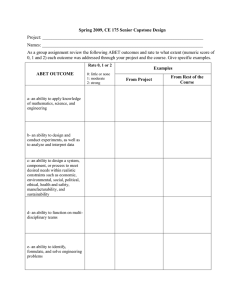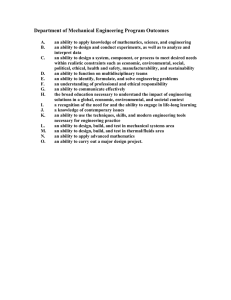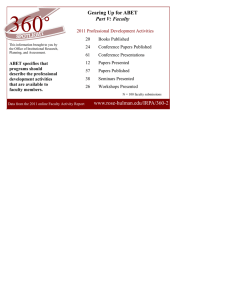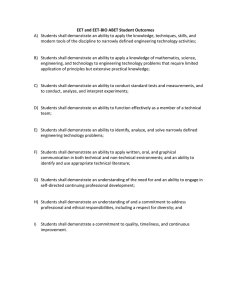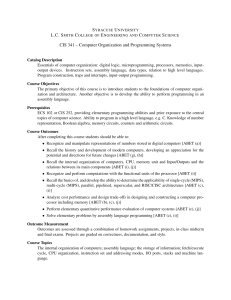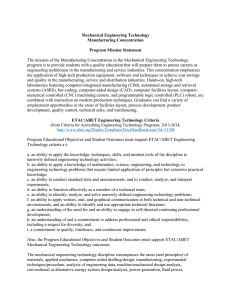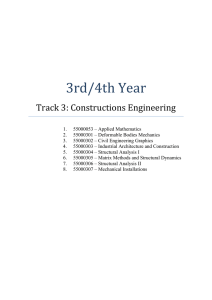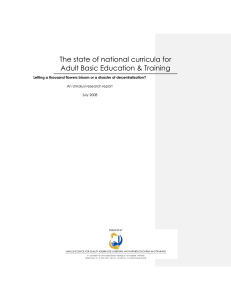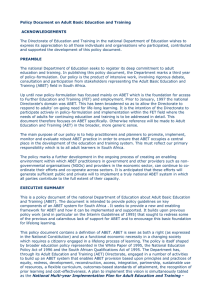learning outcomes Code Domain
advertisement
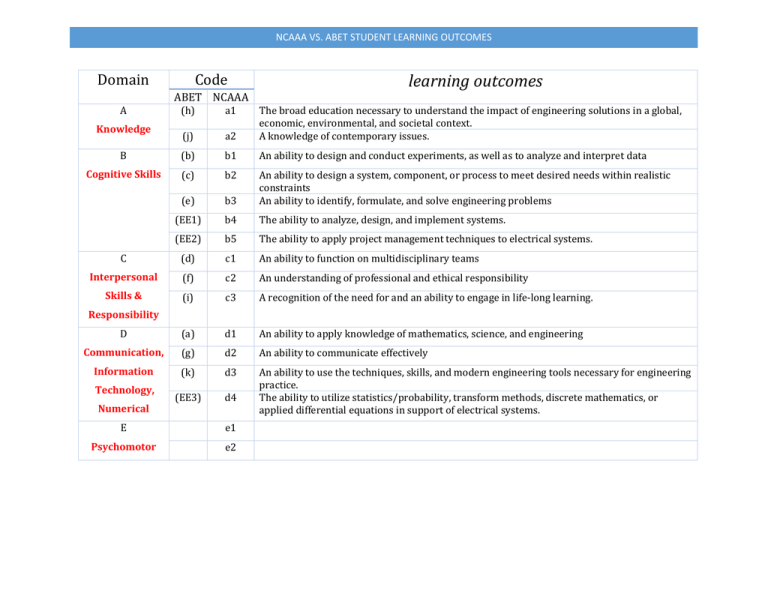
NCAAA VS. ABET STUDENT LEARNING OUTCOMES Domain Code ABET NCAAA A learning outcomes (h) a1 (j) a2 The broad education necessary to understand the impact of engineering solutions in a global, economic, environmental, and societal context. A knowledge of contemporary issues. B (b) b1 An ability to design and conduct experiments, as well as to analyze and interpret data Cognitive Skills (c) b2 (e) b3 An ability to design a system, component, or process to meet desired needs within realistic constraints An ability to identify, formulate, and solve engineering problems (EE1) b4 The ability to analyze, design, and implement systems. (EE2) b5 The ability to apply project management techniques to electrical systems. C (d) c1 An ability to function on multidisciplinary teams Interpersonal (f) c2 An understanding of professional and ethical responsibility Skills & (i) c3 A recognition of the need for and an ability to engage in life-long learning. D (a) d1 An ability to apply knowledge of mathematics, science, and engineering Communication, (g) d2 An ability to communicate effectively Information (k) d3 (EE3) d4 An ability to use the techniques, skills, and modern engineering tools necessary for engineering practice. The ability to utilize statistics/probability, transform methods, discrete mathematics, or applied differential equations in support of electrical systems. Knowledge Responsibility Technology, Numerical E e1 Psychomotor e2
